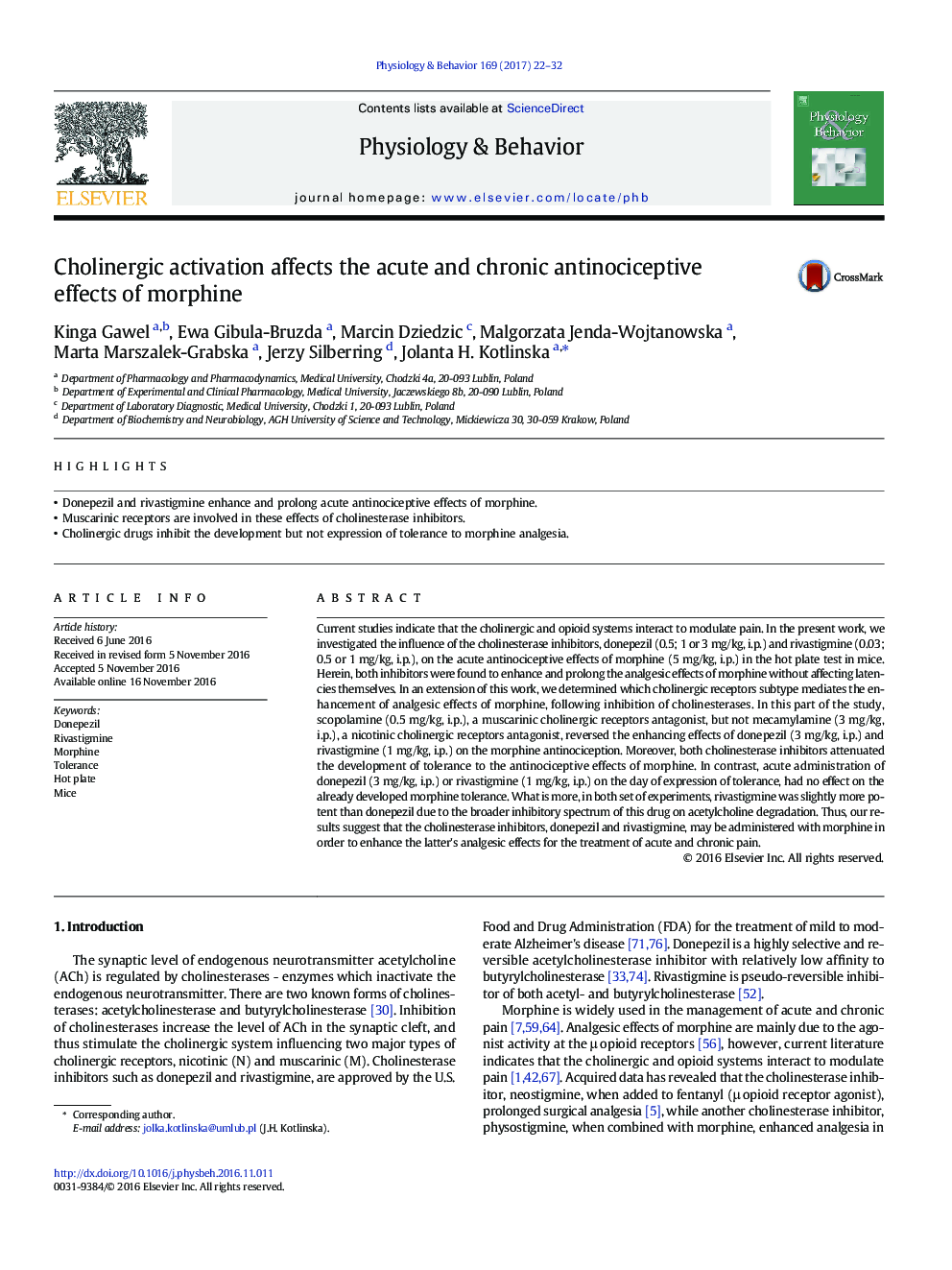| Article ID | Journal | Published Year | Pages | File Type |
|---|---|---|---|---|
| 5593989 | Physiology & Behavior | 2017 | 11 Pages |
Abstract
Current studies indicate that the cholinergic and opioid systems interact to modulate pain. In the present work, we investigated the influence of the cholinesterase inhibitors, donepezil (0.5; 1 or 3Â mg/kg, i.p.) and rivastigmine (0.03; 0.5 or 1Â mg/kg, i.p.), on the acute antinociceptive effects of morphine (5Â mg/kg, i.p.) in the hot plate test in mice. Herein, both inhibitors were found to enhance and prolong the analgesic effects of morphine without affecting latencies themselves. In an extension of this work, we determined which cholinergic receptors subtype mediates the enhancement of analgesic effects of morphine, following inhibition of cholinesterases. In this part of the study, scopolamine (0.5Â mg/kg, i.p.), a muscarinic cholinergic receptors antagonist, but not mecamylamine (3Â mg/kg, i.p.), a nicotinic cholinergic receptors antagonist, reversed the enhancing effects of donepezil (3Â mg/kg, i.p.) and rivastigmine (1Â mg/kg, i.p.) on the morphine antinociception. Moreover, both cholinesterase inhibitors attenuated the development of tolerance to the antinociceptive effects of morphine. In contrast, acute administration of donepezil (3Â mg/kg, i.p.) or rivastigmine (1Â mg/kg, i.p.) on the day of expression of tolerance, had no effect on the already developed morphine tolerance. What is more, in both set of experiments, rivastigmine was slightly more potent than donepezil due to the broader inhibitory spectrum of this drug on acetylcholine degradation. Thus, our results suggest that the cholinesterase inhibitors, donepezil and rivastigmine, may be administered with morphine in order to enhance the latter's analgesic effects for the treatment of acute and chronic pain.
Related Topics
Life Sciences
Biochemistry, Genetics and Molecular Biology
Physiology
Authors
Kinga Gawel, Ewa Gibula-Bruzda, Marcin Dziedzic, Malgorzata Jenda-Wojtanowska, Marta Marszalek-Grabska, Jerzy Silberring, Jolanta H. Kotlinska,
